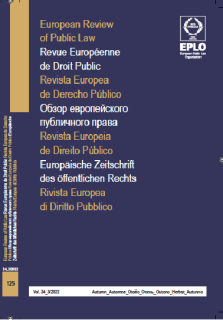
Political Parties: Structure, Funding and Campaigning
Doctor of Law, Law School of Athens
This article aims to study the structure, funding, and campaigning of political parties in Greece, with reference to the respective institutional legal-political context in Europe and the USA. First, the structure of political parties is analyzed. There are three systems of legislative treatment of political parties, the substance, the formal and the mixed. Furthermore, the funding of political parties is analyzed. Law 3023/2002 (Article 1) establishes the mandatory state funding of political parties, which distinguishes between regular and electoral. Moreover, the ways of political parties campaigning are analyzed. Since radio and television as a means and a factor in shaping opinion have a substantial effect on the making and maintenance of the democratic structure of the public sphere, they must be separated from the sphere of coordinated state power. Finally, there is the necessity of more and more citizen participation in the political scene and of strengthening direct democratic institutions.
Cet article a pour but d’étudier la structure, le financement et les campagnes électorales des partis politiques en Grèce, en référence au contexte institutionnel juridico-politique correspondant en Europe et aux Etats-Unis. Tout d’abord, il présente une analyse de la structure des partis politiques. Il existe trois systèmes de traitement législatif des partis politiques: de substance, de forme et mixte. Vient ensuite l’analyse du financement des partis politiques. La loi grecque 3023/2002 (article 1) établit le financement obligatoire des partis politiques par l’Etat, qui fait la distinction entre financement ordinaire et financement électoral. Ensuite, l’article analyse les moyens de campagnes électorales des partis politiques. Etant donné que la radio et la télévision, en tant que moyens et facteurs de formation de l’opinion, ont un effet substantiel sur la production et le maintien de la structure démocratique de la sphère publique, elles doivent être séparées de la sphère du pouvoir public coordonné. Enfin, il est nécessaire que le citoyen participe de plus en plus à la scène politique et que les institutions relevant de la démocratie directe soient renforcées.





















